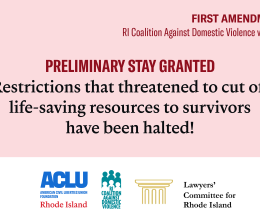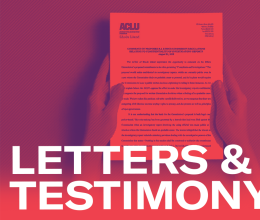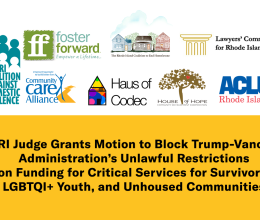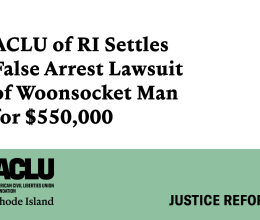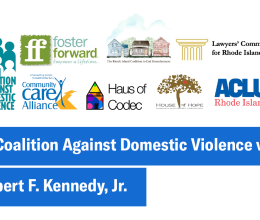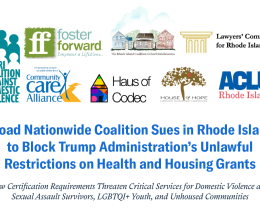The ACLU of Rhode Island today settled a federal lawsuit against the City of Cranston, successfully challenging its selective enforcement of ordinances barring the placement of commercial advertisements on city property. The suit was filed two filed years ago by ACLU volunteer attorney Richard A. Sinapi on behalf of Stephen Hunter, a lawyer who was threatened with fines if he did not take down signs advertising his business that he had posted at various intersections throughout the city – even though there were dozens of other advertising signs posted at the same locations and many hundreds more citywide, which were left untouched and not cited.
Under the consent judgment filed in U.S. District Court today, the City is “permanently restrained and enjoined from selectively enforcing [the two relevant ordinances], as currently worded or as the same may be amended, as to the Plaintiff and shall enforce the above provisions in a uniform and non-discriminatory manner in compliance with the First and Fourteenth Amendments to the United States Constitution. . .” The consent judgment, which needs to be approved by US District Court Chief Judge William Smith, also provides for the award of $35,000 in attorneys’ fees.
The suit was prompted after Hunter saw city Department of Public Works employees taking down his signs at an intersection, while not removing any of the other advertising signs posted at the same location. During a two month period when Hunter was receiving City notices that his signs were in violation of the ordinances and had to be removed, an open records request that he filed revealed that no other person or entity in violation of the ordinance had been sent a similar notice. Hunter used the signs to advertise his legal bankruptcy work. The lawsuit argued that the City’s conduct violated his rights to freedom of speech and equal protection of the laws.
Hunter said today: “It is very important that our officials obey the requirements of the Constitution and enforce our laws and ordinances uniformly; otherwise it sets a very dangerous precedent for everyone.” ACLU of RI volunteer attorney Sinapi added: “When it comes to the First Amendment, the government can’t play favorites or single out particular individuals for discriminatory treatment. I am pleased we were able to settle this lawsuit, as it reinforces this fundamental principle.”
More information on the lawsuit and settlement is available here.

